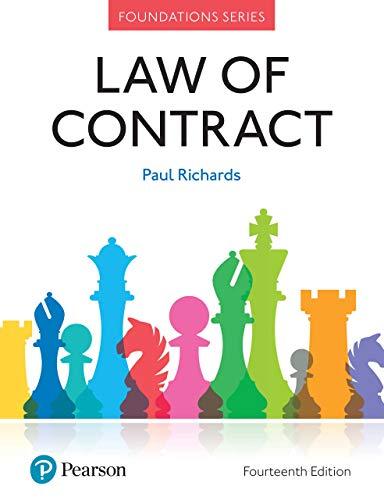Question
Do you 1: I would not claim the damage as $100,000 as directed by my supervisor. This action is known as fraud and I could
Do you 1: I would not claim the damage as $100,000 as directed by my supervisor. This action is known as fraud and I could lose my job if I am caught.
Fraud is defined as "an intentional misrepresentation of material fact made by one person to another with the knowledge that the misrepresentation could result in some type of injury to the person to whom it was made (Gollapudi, 2021)." In this case, the supervisor is asking the employee to misrepresent the cost of repairing the equipment, in order to receive a larger insurance payout. This is fraud because the supervisor is asking the employee to lie about the cost of the repairs, in order to receive more money from the insurance company. If the employee is caught lying about the cost of the repairs, they could lose their job.
Do you 2: I would refuse to claim the damage as $100,000 and instead claim it as $15,000.
Fraud is morally wrong because it involves deceiving others in order to gain an unfair advantage (Gollapudi, 2021). In this case, the supervisor is asking the employee to lie about the amount of damage in order to get a higher reimbursement from the insurance company. This is not fair to the insurance company, and it is also not fair to the employee, who could lose their job if they do not follow the supervisor's instructions.
There are a few reasons why I would refuse to claim the damage as $100,000. First, as I mentioned, fraud is morally wrong and I do not want to be a part of it. Second, if I were to follow my supervisor's instructions, I could lose my job. It is not worth risking my job for a company that is willing to commit fraud. Finally, even if I did not lose my job, I would still have to live with the knowledge that I participated in something that was dishonest. Therefore, I would refuse to claim the damage as $100,000. Fraud is wrong, and I would not want to risk my job for a company that is willing to commit it.
Base on that story:
Prompt:
Step 1 Summary: Question: Answers to who, what, when, where, why, and how:
Step 2 Summary: Answers to as many questions as possible:
Step 3 Summary: Consider the Texas Instruments Guidelines for deciding an acceptable solution to the problem.
Step 4 Summary (TWO solutions):
Step 5 Summary:
Decision making method: Decision:
Step 6 Summary: Actions that can be taken and by whom (can be the fictional characters in your prompt). This is the actual conversation that you will write with your team that reflects the group decision.
Step by Step Solution
There are 3 Steps involved in it
Step: 1

Get Instant Access to Expert-Tailored Solutions
See step-by-step solutions with expert insights and AI powered tools for academic success
Step: 2

Step: 3

Ace Your Homework with AI
Get the answers you need in no time with our AI-driven, step-by-step assistance
Get Started


